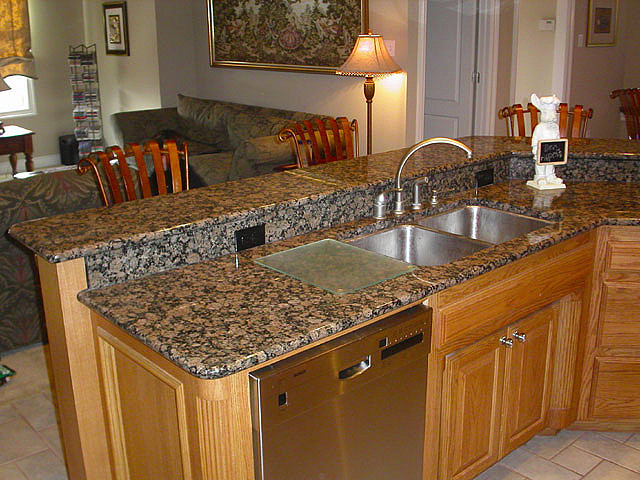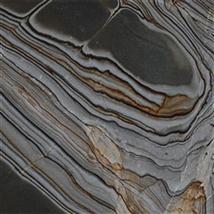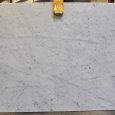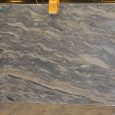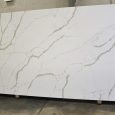All Natural Stones can scratch. BUT, Granite is far more resistant to scratching than Soapstone and Marble because it is a harder Natural Stone. Usually, the harder the stone is, the harder it is to scratch, and the harder it is to remove the scratch.
What Scratches Natural Stone?
Something harder than the actual stone would need to scratch it. For example, a piece of Granite or Marble would scratch a piece of Soapstone. But, Soapstone would not scratch your Marble or your Granite. A copper penny with a hardness of 3.5 on MOH’s scale of relative hardness will scratch Soapstone, may scratch Marble, but it won’t scratch Granite.
A Few More Examples…
- Softer stones can be scratched from foot traffic. Dirt, sand, and grit from your shoes are an abrasive to stone flooring. This is why it is recommended to use rugs or mats near entry ways and to dust mop frequently.
- Sanded grouts are capable of scratching softer Natural Stones.
- Dragging furniture across your floor may scratch it. Try to lift, not drag your furniture.
- Softer stone countertop materials such as Marble and Soapstone may be scratched from toys, cutting on them, or tossing your keys across them.
Granite is a much harder stone and therefore more resistant to scratching. It does not scratch easily. According to Frederick Hueston, a prominent stone expert and consultant, “The only thing that could possibly scratch granite would be if a person would turn their diamond ring around and scratch the stone surface with it.”
- Granite can also be scratched by another piece of granite rubbing against it. You will notice when your fabricator transports or stores stone, the polished side of a stone is adjacent to the polished side of another stone and the rough side of a stone is adjacent to the rough side of another stone.
Repairing Granite & Natural Stone Scratches
Scratches in stone can and do happen. BUT, can they be repaired? How? This will depend on the type of stone, where the stone is located, and the depth of the scratch.
Soapstone scratches are one of the easiest to repair.
- For light scratches, put mineral oil on a paper towel and apply it using medium pressure. Or, use a small piece of 300 grit sandpaper and sand it out. Then, follow up with a mineral oil application.
- For deeper scratches, use 100 grit sandpaper followed by a mineral oil application.
Granite and marble scratches aren’t repaired quite as easily. If your stone is scratched, a stone care professional would come in with an electric machine and sand the scratch out. Diamond pads, buffer pads, felt pads, and chemical polishers such as tin oxide are used to polish the surface of the stone.
The grit of the pads and the number of steps taken depends on the scratch, your stone’s location, and the type of stone. In some instances, it may be necessary to send the piece of stone in to be resurfaced. This would make your stone like new but it’s expensive.
Can You Repair Scratches Yourself?
Not usually. Surface polishing is definitely not a do it yourself project. This is an art and irreversible damage can occur. It’s even possible to make the scratch worse by leaving a dip in the stone or losing the luster of the surface.
Possible Quick Fixes
- Try buffing slight surface scratches with dry #0000 steel wool.
- It may be possible to “fix” small scratches on dark stones yourself by using a black permanent marker or a paint marker (these work the best). Color in the scratch and then wipe off the area with denatured alcohol to remove any excess color. This method isn’t repairing granite or stone scratches. The scratch becomes visually absent.
- If the scratch disappears when wet, you may be able to camouflage it by using a good quality stone color enhancer.
We recommend that you consult with your stone specialist when repairing Granite & Natural Stone scratches.
Disclaimer: Please note that the information on this page is a general summary of industry-accepted tips in stone care that we have compiled to help you in your stone selection and care. Please note that natural stone varies substantially. Ask your stone specialist what works best for your particular stone.
Marble & Granite Supply of Illinois, Inc. will not be responsible or liable either in tort or contract for any injury or damage, loss of direct, consequential, punitive or accidental, or any similar damages including, but not limited to loss of profits damages, arising out of the use, or inability to use the information in this article.
Marble & Granite Supply of Illinois, Inc. does not make any warranty, representations or guarantees, express or implied, with respect to the information provided in this article.


